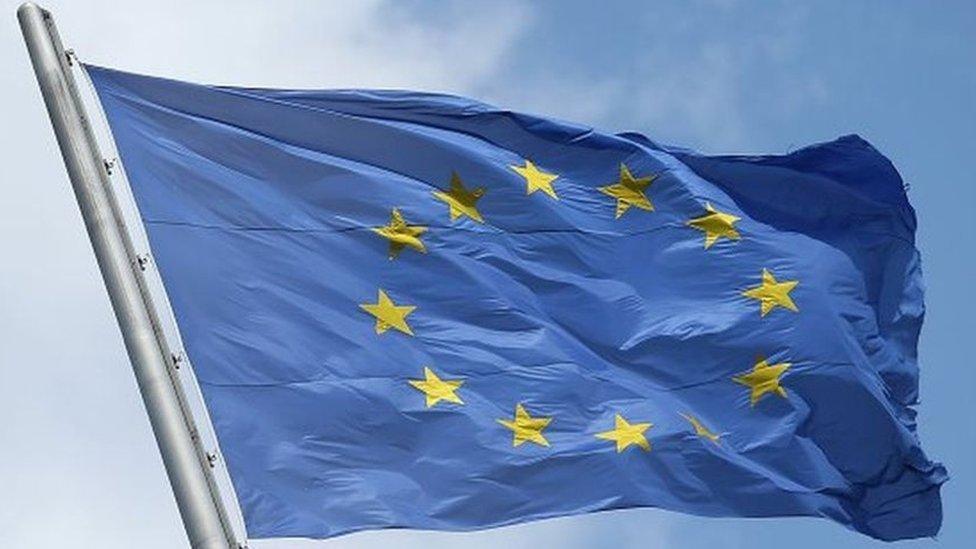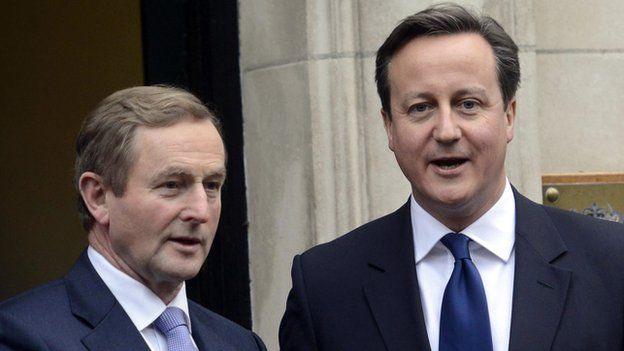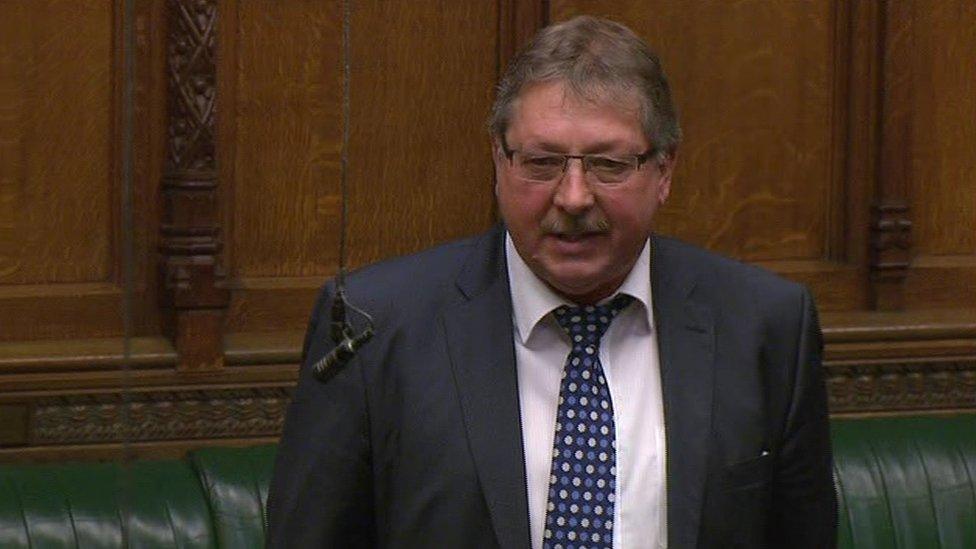Brexit Northern Ireland impact 'would be small', MPs told
- Published

The UK looks set to hold a referendum on its membership of the European Union this year
A UK exit from the European Union would not have "much effect" on the Northern Ireland economy, a Cambridge academic has told a Westminster inquiry.
Economist Dr Graham Gudgin was giving evidence to the Northern Ireland Affairs Committee.
He said studies done so far suggest the impacts on the UK economy would be in the range of plus or minus 2% of GDP.
He described that impact as "pretty small" and "within the margin of error."
Dr Gudgin, a former adviser to David Trimble, said the UK would have £10bn in net savings which is currently paid into the EU.
He said that meant there would be "plenty of money around" to replace the EU subsidies on which Northern Ireland farmers rely.
DUP 'likely to campaign for British exit' in EU referendum
Read more: The UK's EU referendum - everything you need to know
However, he cautioned that there is "total uncertainty", with everything depending on the exact post-exit arrangements.
Two other economists giving evidence on Wednesday also pointed to the issue of uncertainty.
Prof Neil Gibson, from Ulster University, said "nobody will know" what new trade deals will emerge post-exit.
He said "the whole complexity" of such deals add a "huge level of uncertainty" which, he said, will be an important factor when people come to vote.
However, he was optimistic that the UK could get a good trade deal with the EU.
He said it would be in both sides' interests to have "a very open trade agreement".
However, Dr Leslie Budd from the Open University said he did not share that optimism on trade.
He said the transaction costs of trying to get deals with a range of countries "could be very large".
He also raised questions about the impact of foreign direct investment in the UK.
Meanwhile, Prof Gibson said a UK exit could, in the short-term, blunt the impact of Northern Ireland having a reduced rate of corporation tax.
He said it could lead foreign firms to postpone investment until trade agreements become clear.
"I think there would be added complexity, it would at least be a factor in those firm's intentions," he added.
He said that could lead to a situation where the tax was cut and "in the first two years not much is happening."
- Published30 December 2020

- Published25 January 2016

- Published22 January 2016
- Published21 January 2016
